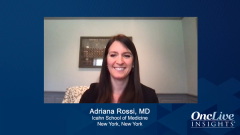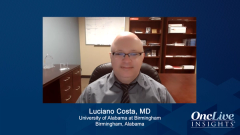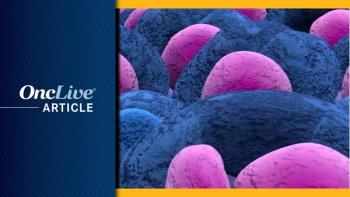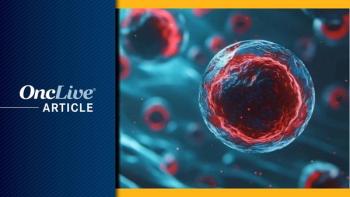
Moving Bispecific and CAR T-Cell Therapies to Earlier Lines of Therapy in MM
Luciano Costa, MD, and Adriana Rossi, MD, consider the possibility of earlier-line bispecific and CAR T-cell therapies in multiple myeloma.
Episodes in this series

Transcript:
Luciano Costa, MD: Dr Rossi, I’ll pick your brain on this issue. We discussed patients who are heavily pretreated, and we talked about the triple-class refractory setting, where most likely agents like teclistamab, talquetamab, and others will first become broadly available. I’d like to hear your thoughts. You are invested in myeloma in general, and in CAR [chimeric antigen receptor] T-cell therapy. How do you see bispecific therapy evolving and being used in the broader landscape of myeloma therapy in the future?
Adriana Rossi, MD: I think it’s the interesting posit of modalities and targets, and not equating the two. Certainly, there’s a great deal of excitement with having approved products, CAR T cells targeting BCMA [B‑cell maturation antigen]. I look forward to there being the similar modality with new targets. That will posit its own question, but BCMA itself is an excellent target. There are so many different ways of targeting and using it, and we are participating in the studies that are trying to move, at least the CAR T targeting, up front, and using it after a short induction and seeing if we can do better. As you know, we’re excited about these amazing responses, but again, we’re looking at these very refractory, likely T-cell exhausted patients. I’m hopeful that as we move it forward and we have healthier, more robust T cells, these autologous programs will exceed our expectations, and we may go back to our original thought of being able to have a one and done treatment for at least a prolonged period. So many of the other treatments we use are a commitment to continuous therapy. I am cautiously optimistic. I’ll wait for the data, but I’m very hopeful that we’ll be able to move BCMA earlier, get longer first remissions that could be free of any maintenance or equivalent. That includes knowing and recognizing that myeloma is a very worthy opponent, it will still relapse, and then we’ll posit the question of what we do at that point.
Luciano Costa, MD: I think those are great points and certainly are worth pursuing with myeloma. I think the points you made about the CAR T cells also apply to bispecifics, in a way. I hypothesize, at least, that the bispecifics might be even more dependent than CAR T on the innate status of T-cell health, because you’re not doing any manipulation on those T cells to make them engage and activate like you do with the CAR T cells. I would suspect the bispecifics would be even more impactful as you use them in earlier lines of therapy. We cannot forget that if we think of bispecifics and CAR T cells as being 2 breakthrough improvements in myeloma, the bispecifics have the characteristics of being much more scalable because you have an off-the-shelf product, where we don’t have that yet for CAR T, which is mostly an autologous product.
We’re starting to see a very rapid development of combinations with CD38 monoclonal antibodies, immunomodulatory agents, proteasome inhibitors, and any combination of the above. Those have a more conventional path of myeloma drug development, essentially combining and challenging the incumbent regimens, as we’ve seen in randomized trials, for example, the ongoing MajesTEC-3 trial. Very much like CAR T, it is just a matter of time before we pursue bispecific combinations in the newly diagnosed setting.
Transcript edited for clarity.





































